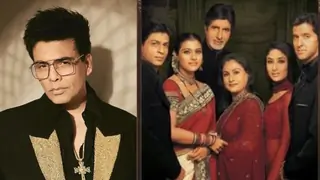oh no no that is right.. what you are saying is right... there were many casts/classes and they are showing only two.. your point is right.. the class system originally started because some wise men thought it would work best for society... even today i personally feel because of environment/bringing up + genetic effects some classes are very good at business while others at skill while others at education etc....
however the system which originally was built because "people thought it would be best for society" was later an enforcement.
even if a shudra was adept at a skill he couldnt do it because he was a shudra.. even if he was intelligent enough he wouldnt be allowed entry into school or allowed to do business.. even if eklavya was excellent at archery he couldnt directly train under drona (apart from arjuns jealousy ofcourse) so that is all enforcement and taking away people's basic rights..
hence that is caste system taking the form of slavery and this existed in almost EVERY society... 😊 even the greatest greatest ones (far greater than any Indian civilizations, like the Egyptians and the Roman had slavery as part of them)
i searched up for slavery and ancient India and it has indeed been very prominent in our history .. I learnt quite a few interesting facts...
below is just a small paragraph i picked up from the net
Slavery has existed in India since the time of the Mauryas at least. However, since Indian society has throughout been subject to the strictly-enforced caste system, the differences between those in the lowest caste and the lot of the slaves are not very great and, in some cases, it may have been better to be a slave. For example, a low caste person had to work constantly to obtain food and water while slaves occasionally (although not very often) could have time off from work. Laws also existed as to what sort of treatment it was permitted to use with slaves: they could be beaten on the back but not the head. No one can minimize the misery of being enslaved and it is almost certain that many masters were able to disregard these kinds of rules but, nevertheless, at least some structure of protection were provided. These were supplemented by both Hindu and Buddhist precepts, which will also have been influential in affecting the behaviour of some people.
It was also possible for free-born Indians to become slaves, perhaps through a court decision after having committed a serious crime. Others might be enslaved as a result of war or trafficking but it was also possible for people to put themselves up for enslavement. They could put their freedom at stake as surety for a cash loan or for a gambling stake. However, enslavement need not be permanent. A financial arrangement could be made in these cases but, if worst came to worst, slaves were allowed one chance to try to escape and, if they managed to get away, they were permitted to claim their freedom permanently.
Edited by lashy - 17 years ago

































